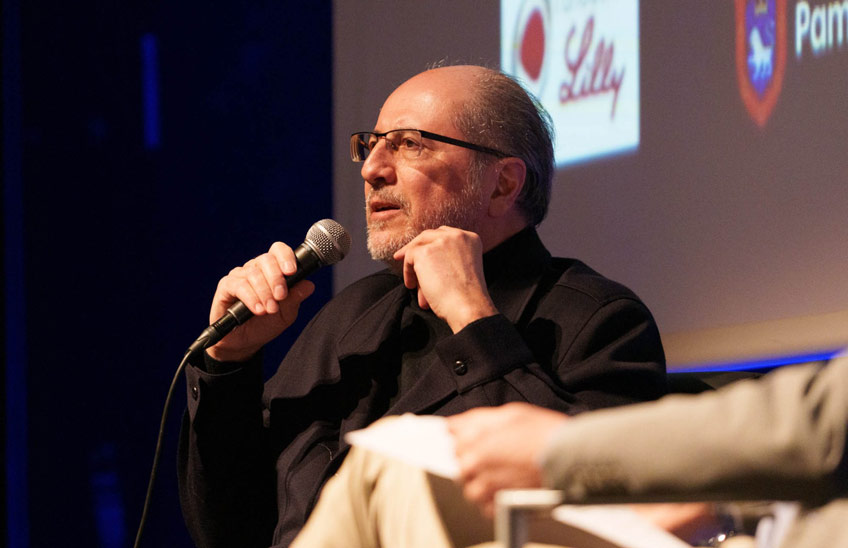José Luis Orihuela: "The toll we pay for using technological devices is the tracking of our activity".
The professor of the School of Communication participated in the #LabMeCrazy! scientific film festival organized by the Science Museum of the University of Navarra with a session on digital identity.

FotoManuelCastells
/José Luis Orihuela, professor at the School of Communication, during his speech.
16 | 02 | 2024
"The toll we pay for using technological devices is the tracking of our activity. Total disconnection is not feasible. But we do demand that companies provide us with the possibility of auditing, transporting and eliminating our data". This was stated by José Luis Orihuela, professor at the School of Communication, at a conference organized by the Science Museum University of Navarra as part of the activities of the #LabMeCrazy! Science Film Festival.
In a discussion with Bienvenido León, director of the festival, Professor Orihuela explained the concept of digital identity and the four basic elements that make it up. "It is the online representation of a person. It is made up of the character, that is, what one says about oneself on the network; what is shared, which makes up the digital footprint; visibility, which is what a search engine publicly knows about someone; and the perception of others, the reputation that all of the above generates," he explained.
Given that we cannot control the construction of our digital identity, José Luis Orihuela advocated thinking carefully before posting something on social networks. "We don't need to be on all the networks. We don't need to share everything we do, nor does the world need our opinion about everything. The key is moderation and adjusting the use of networks to our needs. They are tools that have to help us," he added. And he stressed the importance of building a solid digital identity as it impacts the physical world by creating job opportunities, academic, love, social...
Orihuela also referred to digital twins: clones in the virtual world; and referred to the documentary "Made to measure" that will be screened as part of #LabMeCrazy! on February 23. The film recounts a real experiment in which a person's double was created based solely on his or her personal online data. The documentary explores what Google, Facebook and hundreds of other data companies do with the personal data of billions of people.
"Gmail is free, Google is free, Facebook is free. The basis of their business is our data. Everything we do on the Internet leaves a footprint and that footprint is tracked," said the expert. "When we think of Artificial Intelligence we think of anthropomorphic robots. It is a contamination of cinema that needs to put body to show it. But the reality is that we live with a practically invisible AI that is behind our Google searches, our Instagram timeline... The most physical thing we have are smart speakers and there will come a time when, by the type of queries we make to them, they will be able to detect our mood and propose a movie or a Spotify list," he assured.
But despite the risks and challenges posed by the digital world, Professor Orihuela concluded by defining himself as a radical optimist. "If not, I would not be able to dedicate myself to teaching," he assured. "What we have to do is to train students in the creative partI believe that in the future we will be more aware of the importance of our data. "I believe that in the future we will be more aware of the importance of our data. And we will be willing to pay not to be commercialized with it," he concluded.
